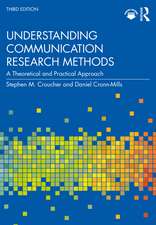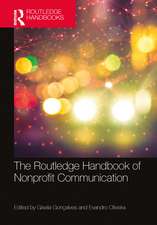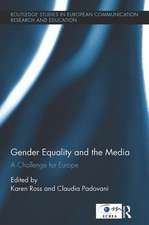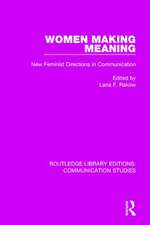The Oxford Handbook of the Science of Science Communication: Oxford Library of Psychology
Editat de Kathleen Hall Jamieson, Dan Kahan, Dietram A. Scheufeleen Limba Engleză Hardback – 6 iul 2017
Din seria Oxford Library of Psychology
-
 Preț: 365.73 lei
Preț: 365.73 lei - 23%
 Preț: 930.94 lei
Preț: 930.94 lei - 34%
 Preț: 794.94 lei
Preț: 794.94 lei - 32%
 Preț: 778.53 lei
Preț: 778.53 lei - 14%
 Preț: 1008.17 lei
Preț: 1008.17 lei - 34%
 Preț: 1080.01 lei
Preț: 1080.01 lei - 23%
 Preț: 926.67 lei
Preț: 926.67 lei - 34%
 Preț: 1055.24 lei
Preț: 1055.24 lei - 14%
 Preț: 339.74 lei
Preț: 339.74 lei - 23%
 Preț: 1081.54 lei
Preț: 1081.54 lei - 33%
 Preț: 687.81 lei
Preț: 687.81 lei - 23%
 Preț: 1218.63 lei
Preț: 1218.63 lei - 12%
 Preț: 659.49 lei
Preț: 659.49 lei - 33%
 Preț: 728.14 lei
Preț: 728.14 lei - 14%
 Preț: 605.03 lei
Preț: 605.03 lei - 34%
 Preț: 1296.28 lei
Preț: 1296.28 lei - 23%
 Preț: 1057.75 lei
Preț: 1057.75 lei - 33%
 Preț: 686.58 lei
Preț: 686.58 lei - 23%
 Preț: 982.70 lei
Preț: 982.70 lei - 33%
 Preț: 829.25 lei
Preț: 829.25 lei - 27%
 Preț: 1112.16 lei
Preț: 1112.16 lei - 24%
 Preț: 366.79 lei
Preț: 366.79 lei - 27%
 Preț: 1218.13 lei
Preț: 1218.13 lei - 34%
 Preț: 1154.63 lei
Preț: 1154.63 lei - 33%
 Preț: 684.05 lei
Preț: 684.05 lei - 33%
 Preț: 731.24 lei
Preț: 731.24 lei - 33%
 Preț: 650.02 lei
Preț: 650.02 lei - 34%
 Preț: 796.97 lei
Preț: 796.97 lei - 33%
 Preț: 682.10 lei
Preț: 682.10 lei - 33%
 Preț: 827.89 lei
Preț: 827.89 lei - 26%
 Preț: 708.76 lei
Preț: 708.76 lei - 23%
 Preț: 1628.61 lei
Preț: 1628.61 lei - 20%
 Preț: 618.15 lei
Preț: 618.15 lei - 5%
 Preț: 1228.30 lei
Preț: 1228.30 lei - 15%
 Preț: 370.97 lei
Preț: 370.97 lei - 5%
 Preț: 1426.29 lei
Preț: 1426.29 lei - 23%
 Preț: 1389.15 lei
Preț: 1389.15 lei - 5%
 Preț: 1041.50 lei
Preț: 1041.50 lei - 27%
 Preț: 1112.44 lei
Preț: 1112.44 lei - 23%
 Preț: 374.66 lei
Preț: 374.66 lei - 23%
 Preț: 937.60 lei
Preț: 937.60 lei - 33%
 Preț: 1094.59 lei
Preț: 1094.59 lei - 23%
 Preț: 1101.73 lei
Preț: 1101.73 lei - 33%
 Preț: 799.90 lei
Preț: 799.90 lei - 34%
 Preț: 1033.24 lei
Preț: 1033.24 lei - 34%
 Preț: 1358.82 lei
Preț: 1358.82 lei - 33%
 Preț: 804.39 lei
Preț: 804.39 lei
Preț: 828.23 lei
Preț vechi: 1247.54 lei
-34% Nou
Puncte Express: 1242
Preț estimativ în valută:
158.50€ • 172.11$ • 133.14£
158.50€ • 172.11$ • 133.14£
Carte tipărită la comandă
Livrare economică 11-17 aprilie
Preluare comenzi: 021 569.72.76
Specificații
ISBN-13: 9780190497620
ISBN-10: 0190497629
Pagini: 512
Ilustrații: 37
Dimensiuni: 257 x 183 x 31 mm
Greutate: 1.11 kg
Editura: Oxford University Press
Colecția OUP USA
Seria Oxford Library of Psychology
Locul publicării:New York, United States
ISBN-10: 0190497629
Pagini: 512
Ilustrații: 37
Dimensiuni: 257 x 183 x 31 mm
Greutate: 1.11 kg
Editura: Oxford University Press
Colecția OUP USA
Seria Oxford Library of Psychology
Locul publicării:New York, United States
Recenzii
For scholars interested in science communication, the handbook is a valuable tool for understanding both emerging and established topics. For others, it is a sign that the science of science communication has become an academic field in its own right.
This handbook poses a fundamental question about psychology: Where does psychology fit within interdisciplinary research today? Science communication is not a field that has previously come under the umbrella of psychology, but the material in this book, and the way it is presented, will be of interest to a broad range of psychologists.
The Oxford Handbook of the Science of Science Communication is a comprehensive and much-needed resource for anyone concerned with the faithful and effective communication of science. It ably accomplishes the difficult feat of portraying the current state of understanding on this very broad topic while simultaneously presenting concise recommendations for future scholarship and practice. Perhaps most importantly, the Handbook should put to rest the notion that there is insufficient knowledge available to improve efforts to engage the many 'publics' on scientific topics.
Familiarity with the discoveries, norms, and ways of knowing of science should not be limited to scientists. By applying the scientific method itself to scientific communication, Jamieson, Kahan, and Scheufele improve the effectiveness with which researchers disseminate their findings and demystify science for broad audiences.
This handbook poses a fundamental question about psychology: Where does psychology fit within interdisciplinary research today? Science communication is not a field that has previously come under the umbrella of psychology, but the material in this book, and the way it is presented, will be of interest to a broad range of psychologists.
The Oxford Handbook of the Science of Science Communication is a comprehensive and much-needed resource for anyone concerned with the faithful and effective communication of science. It ably accomplishes the difficult feat of portraying the current state of understanding on this very broad topic while simultaneously presenting concise recommendations for future scholarship and practice. Perhaps most importantly, the Handbook should put to rest the notion that there is insufficient knowledge available to improve efforts to engage the many 'publics' on scientific topics.
Familiarity with the discoveries, norms, and ways of knowing of science should not be limited to scientists. By applying the scientific method itself to scientific communication, Jamieson, Kahan, and Scheufele improve the effectiveness with which researchers disseminate their findings and demystify science for broad audiences.
Notă biografică
Kathleen Hall Jamieson is the Elizabeth Ware Packard Professor at the Annenberg School for Communication of the University of Pennsylvania and the Walter and Leonore Annenberg Director of its Annenberg Public Policy Center. The author of four award winning Oxford University Press books on political and press communications, she is co-founder of FactCheck.org, which researches the veracity of claims made by political players. Its SciCheck feature was launched in 2015 to expose the misuse of scientific evidence in political discourse.Dan Kahan is the Elizabeth K. Dollard Professor of Law and Professor of Psychology at Yale Law School. He is a member of the Cultural Cognition Project, an interdisciplinary team of scholars who use empirical methods to examine the impact of group values on perceptions of risk and science communication.Dietram A. Scheufele is the John E. Ross Professor in Science Communication and Vilas Distinguished Achievement Professor at the University of Wisconsin-Madison and in the Morgridge Institute for Research. His research deals with the interface of media, policy, and public opinion. Scheufele has co-chaired the National Academies of Sciences, Engineering, and Medicine's Roundtable on Public Interfaces of the Life Sciences, and vice-chaired the recent Academies' consensus report on "Communicating science effectively: A research agenda."





